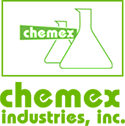The U.S. Centers for Disease Control & Prevention (CDC) has reported that Clostridium difficile (C. diff) infections have reached an all-time high. In fact C. diff is linked to roughly 14,000 deaths between 2006 and 2007, up from the 3,000 deaths between 1999 and 2000.
"C. diff", is a species of Gram-positive bacteria of the genus Clostridium that causes severe diarrhea and other intestinal disease when competing bacteria in the gut flora have been wiped out by antibiotics.
Clostridia are anaerobic, spore-forming rods (bacilli).C. difficile is the most serious cause of antibiotic-associated diarrhea (AAD) and can lead to pseudo membranous colitis, a severe inflammation of the colon, often resulting from eradication of the normal gut flora by antibiotics.
Patients in medical facilities are at the most risk for infection. According to the CDC, 25% of C. diff infections first appear in hospitalized patients, while 75 % occur either in nursing homes residents or in people recently treated in doctors offices or clinics.
C. difff spreads in two ways. Sometimes doctors use broad-spectrum antibiotics when they're not necessary, killing not only the bacteria they target but healthy bacteria in the intestines that keep C. diff at bay. The second route is the easy spread of C. diff spores from infected patients through fecal contamination. The hard-to-kill spores are carried, often by hospital personnel, from bathroom fixtures to light switches, doorknobs, bedrails and other high-touch surfaces.
Effective cleaning is a key solution. The use of disinfectants that kill C. diff spores and new cleaning methods, such as ultraviolet lights or vaporized chemicals, can prevent its spread. At the Mayo Clinic in Rochester, Minn., daily cleaning of all high touch surfaces in rooms with disinfectant wipes cut infection rates by more than 30% in two units with the highest incidence of C. diff.
What's particularly problematic, is that hand washing and many disinfectants and sanitizers being used, including hand sanitizers, do NOT kill C. diff.


RX-75 IS REGISTERED TO KILL CLOSTRIDIUM DIFFICILE- VEGETATITIVE FORM (ATCC 9689) WITH ONE MINUTE CONTACT TIME
Review the RX-75 Technical Data Sheet Here:
Review the RX-75 Efficacy Sheet here:
RX-75 is available in cases of Quarts (12 per case), 4 x 1 Gallon Cases and 55-Gallon Drums
Also available in wipes: 6 x 180 (6"x 7") each, per case
Please contact Chemex Industries, Inc. for additional information, pricing, samples, etc.
RX-75 is also registered to kill the Canine Parvo Virus, MRSA, Norwalk Virus (30 seconds), VRE
